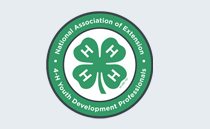Abstract
The field of after-school programming remains rife with unanswered questions. What constitutes quality in after-school programs? Are after-school opportunities valuable for participants regardless of their quality? Are differences in quality associated with differences in participant benefit? This sub-study of the longitudinal evaluation of The After-School Corporation (TASC) looks at how after-school opportunities with varying features affect urban middle-grades (6-8) adolescents who live in impoverished circumstances. Supported by the William T. Grant Foundation, the study explores the associations between after-school project features and the social and cognitive outcomes of disadvantaged middle-grades participants in TASC programs. The study relies on data collected during the 2001-02 and 2002-03 school years in eight TASC projects serving middle-grades students.
Recommended Citation
Russell, Christina A. and Reisner, Elizabeth R.
(2006)
"Supporting Social and Cognitive Growth
Among Disadvantaged Middle-Grades Students
in TASC After-School Projects,"
Journal of Youth Development: Vol. 1:
Iss.
2, Article 10.
Available at:
https://open.clemson.edu/jyd/vol1/iss2/10



